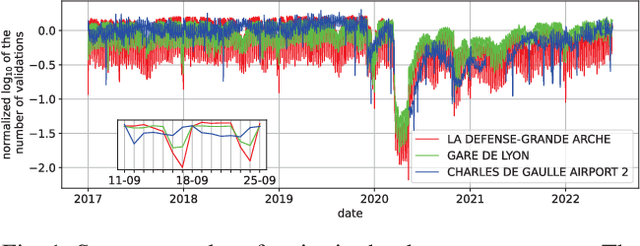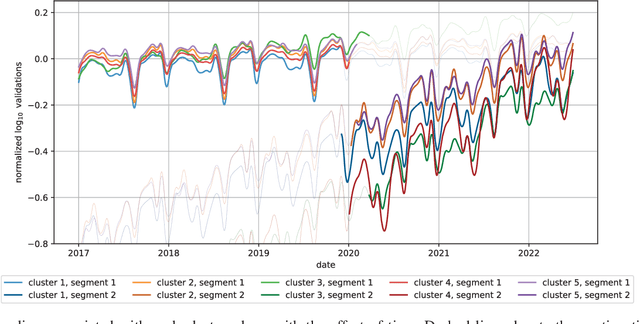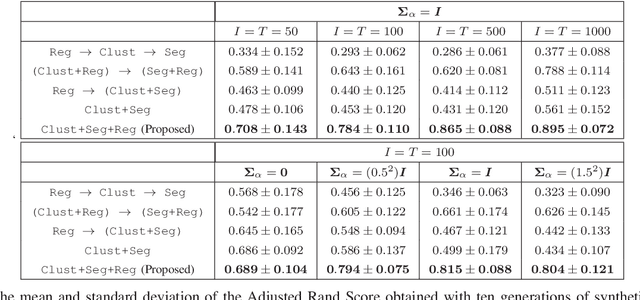Étienne Côme
A Regression Mixture Model to understand the effect of the Covid-19 pandemic on Public Transport Ridership
Feb 16, 2024



Abstract:The Covid-19 pandemic drastically changed urban mobility, both during the height of the pandemic with government lockdowns, but also in the longer term with the adoption of working-from-home policies. To understand its effects on rail public transport ridership, we propose a dedicated Regression Mixture Model able to perform both the clustering of public transport stations and the segmentation of time periods, while ignoring variations due to additional variables such as the official lockdowns or non-working days. Each cluster is thus defined by a series of segments in which the effect of the exogenous variables is constant. As each segment within a cluster has its own regression coefficients to model the impact of the covariates, we analyze how these coefficients evolve to understand the changes in the cluster. We present the regression mixture model and the parameter estimation using the EM algorithm, before demonstrating the benefits of the model on both simulated and real data. Thanks to a five-year dataset of the ridership in the Paris public transport system, we analyze the impact of the pandemic, not only in terms of the number of travelers but also on the weekly commute. We further analyze the specific changes that the pandemic caused inside each cluster.
 Add to Chrome
Add to Chrome Add to Firefox
Add to Firefox Add to Edge
Add to Edge